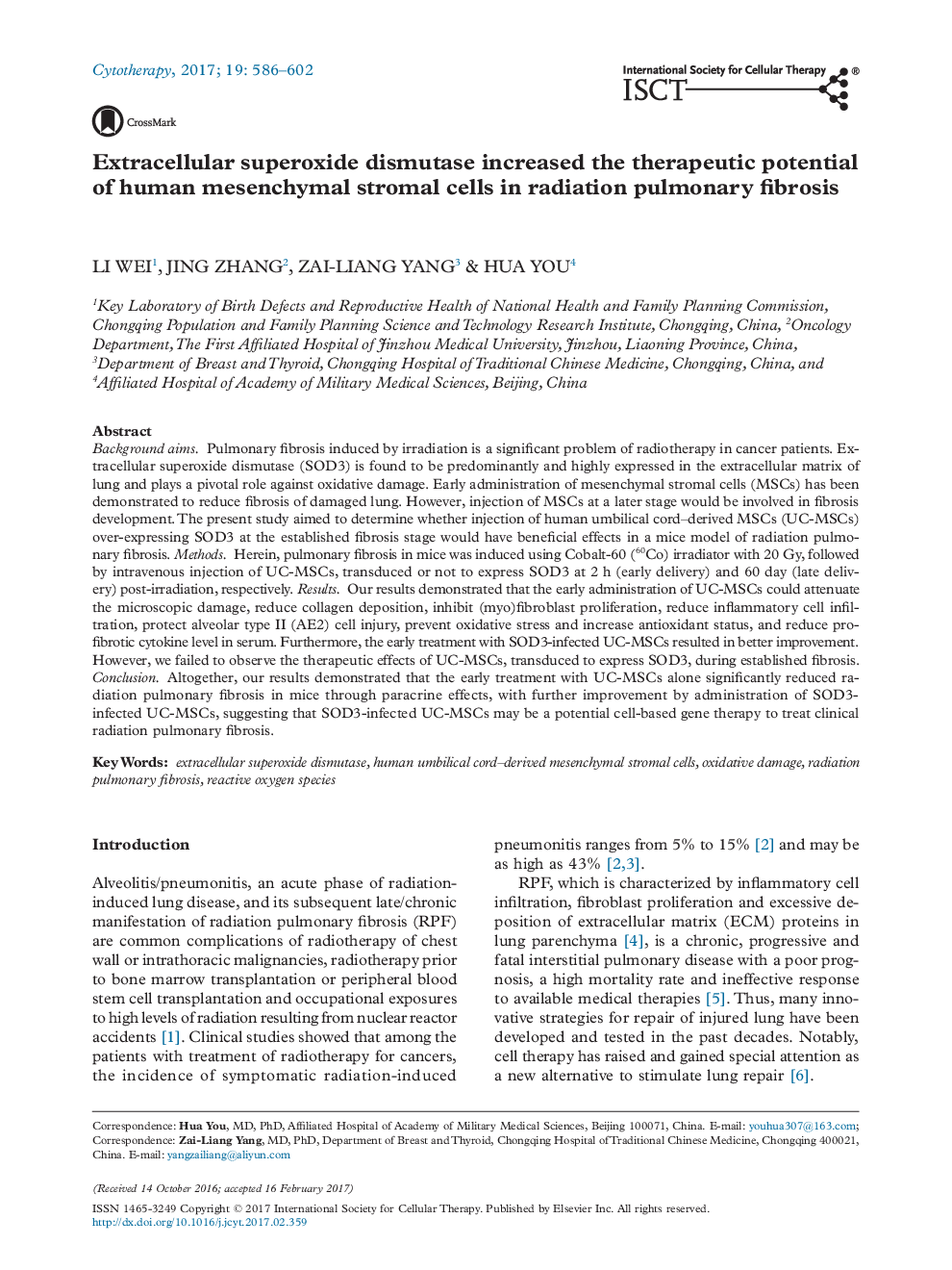| کد مقاله | کد نشریه | سال انتشار | مقاله انگلیسی | نسخه تمام متن |
|---|---|---|---|---|
| 5531425 | 1401796 | 2017 | 17 صفحه PDF | دانلود رایگان |
Background aimsPulmonary fibrosis induced by irradiation is a significant problem of radiotherapy in cancer patients. Extracellular superoxide dismutase (SOD3) is found to be predominantly and highly expressed in the extracellular matrix of lung and plays a pivotal role against oxidative damage. Early administration of mesenchymal stromal cells (MSCs) has been demonstrated to reduce fibrosis of damaged lung. However, injection of MSCs at a later stage would be involved in fibrosis development. The present study aimed to determine whether injection of human umbilical cord-derived MSCs (UC-MSCs) over-expressing SOD3 at the established fibrosis stage would have beneficial effects in a mice model of radiation pulmonary fibrosis.MethodsHerein, pulmonary fibrosis in mice was induced using Cobalt-60 (60Co) irradiator with 20âGy, followed by intravenous injection of UC-MSCs, transduced or not to express SOD3 at 2âh (early delivery) and 60 day (late delivery) post-irradiation, respectively.ResultsOur results demonstrated that the early administration of UC-MSCs could attenuate the microscopic damage, reduce collagen deposition, inhibit (myo)fibroblast proliferation, reduce inflammatory cell infiltration, protect alveolar type II (AE2) cell injury, prevent oxidative stress and increase antioxidant status, and reduce pro-fibrotic cytokine level in serum. Furthermore, the early treatment with SOD3-infected UC-MSCs resulted in better improvement. However, we failed to observe the therapeutic effects of UC-MSCs, transduced to express SOD3, during established fibrosis.ConclusionAltogether, our results demonstrated that the early treatment with UC-MSCs alone significantly reduced radiation pulmonary fibrosis in mice through paracrine effects, with further improvement by administration of SOD3-infected UC-MSCs, suggesting that SOD3-infected UC-MSCs may be a potential cell-based gene therapy to treat clinical radiation pulmonary fibrosis.
Journal: Cytotherapy - Volume 19, Issue 5, May 2017, Pages 586-602
